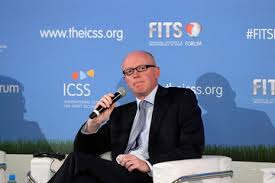By Paul Nicholson
September 7 – The divisions over the ban on third-party ownership of players’ commercial rights were opened up again in a no-holds barred debated at the FITS Forum in Geneva last week.
Alasdair Bell, general counsel and director of legal affairs at UEFA, described third-party investors as being “like payday lenders, there is nothing good to recommend it, conflicts, not good for clubs.”
“A player doesn’t know who owns or is trading his rights. The specifics of these contracts are extremely oppressive. The business model is predicated on the number of player trades. They make a margin every time a trade is made. The trade is good for investors. It is not our job to provide benefits for investors,” said Bell.
Javier Tebas, president of the Spanish league, disagreed with Bell, saying that whole there had been some problem with the movement of ‘minors’, these were only a few cases and did not warrant a full ban on TPO.
“TPO is good for clubs in small leagues and players themselves. My opinion is different to UEFA and FIFA. They did not examine the questions in detail. They have their big TV rights money and they are happy with that. But there are other sources of funding (needed) and TPO is one source. Their mindset hasn’t moved ahead,” said Tebas.
“TPO can be regulated and this has been done in Spain.”
Tebas was backed up by Brazilian lawyer Daniel Cravo Souza of CPB & Associates who said “the task (of reviewing TPO) was not done in a proper way. It should not be the way of UEFA to tell the world.
“There are rules that protect players. If they don’t want a contract with an investor there is a rule for that. You can’t lose the investors. What are clubs to do to retain their talents. They have to share their rights otherwise teams from the Premier League will come along and snatch them.”
Souza said that FIFA and UEFA lacked experience with contracts.
Bell responded swiftly saying that it is about transparency and ethics. “Publish the detail of contracts so people can decide whether they are good for football and in the best interests of players (who don’t know what is in these contracts or who owns them) and clubs. Then people can make an informed judgment,” he said.
Contact the writer of this story at moc.l1745115352labto1745115352ofdlr1745115352owedi1745115352sni@n1745115352osloh1745115352cin.l1745115352uap1745115352

